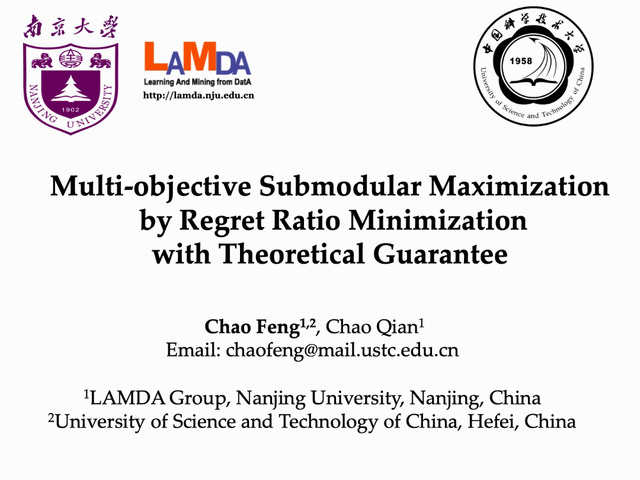Abstract:
We consider the problem of spherical Gaussian Mixture models with $k \geq 3$ components when the components are well separated. A fundamental previous result established that separation of $\Omega(\sqrt{\log k})$ is necessary and sufficient for identifiability of the parameters with \textit{polynomial} sample complexity (Regev and Vijayaraghavan, 2017). In the same context, we show that $\tilde{O} (kd/\epsilon^2)$ samples suffice for any $\epsilon \lesssim 1/k$, closing the gap from polynomial to linear, and thus giving the first optimal sample upper bound for the parameter estimation of well-separated Gaussian mixtures. We accomplish this by proving a new result for the Expectation-Maximization (EM) algorithm: we show that EM converges locally, under separation $\Omega(\sqrt{\log k})$. The previous best-known guarantee required $\Omega(\sqrt{k})$ separation (Yan, et al., 2017). Unlike prior work, our results do not assume or use prior knowledge of the (potentially different) mixing weights or variances of the Gaussian components. Furthermore, our results show that the finite-sample error of EM does not depend on non-universal quantities such as pairwise distances between means of Gaussian components.









































